Murals of the Parish of the Divine Savior
These colonial murals are a fascinating hybrid of Spanish and Indigenous aesthetics.
The town of Malinalco is considered to be one of Mexico’s finest Pueblos Magicos, or “Magic Towns,” due to its many strange and beautiful sights. One of the most interesting is the 16th-century Augustinian monastery known as the Parish of the Divine Saviour, which is covered in wonderfully hallucinatory murals painted during the colonial era.
Created by Indigenous artists at the behest of the Spanish friars, these murals seamlessly combine the religious iconography of Spanish Catholicism with the flair and refined aesthetics of the Indigenous residents who were descendants of the conquered Aztecs.
The eerie botanical landscapes feature the gnarled trees, stark shrubs, and spiny cacti that are characteristic of the Sierras of Central Mexico. Look even closer and you will discover that a strange bestiary of creatures can be seen creeping or climbing timidly through the undergrowth. Here you will be able to make out the figures of monkeys, parrots, opossums, quails, squirrels, roadrunners, and rabbits.
Across the regions colonized by European powers, white settlers forbade Indigenous and enslaved people from practicing their own spiritual practices and forced them to convert to Christianity. While religion was often a critical tool of oppression and cultural extinction, it could also be a form of resistance.
From the subject matter and stylistic elements of the images, it’s evident that the pre-Hispanic cosmovision of the artists’ ancestors and a reverence for the natural world was very much still at the forefront of their minds and artistic sensibilities, in spite of the imposition of the church. The mural also includes a small Memento Mori that features a stern-looking friar being confronted by a menacing scythe-wielding cadaver. The monstrous entity (who looks uncannily like the pale-man monster from the Guillermo Del Toro film Pans Labyrinth) represents the presence of death amidst life.
Know Before You Go
The church is located in the Plaza Principal in the center of Malinalco, adjacent to the market. It's an imposing colonial building so impossible to miss. Entrance costs 60 pesos and the site is open daily from 10 a.m. to 5 p.m.



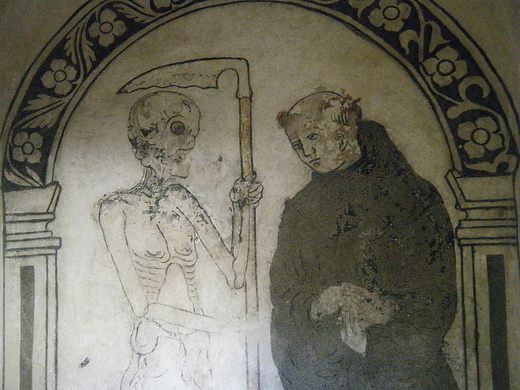
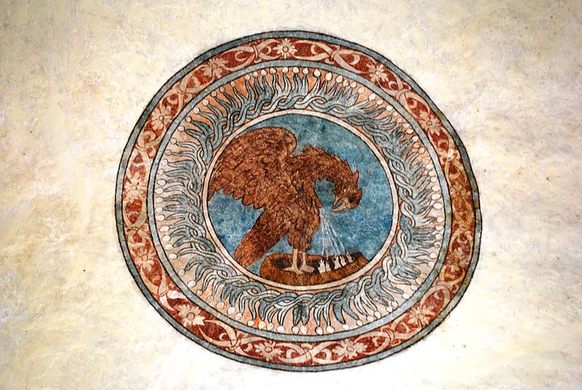
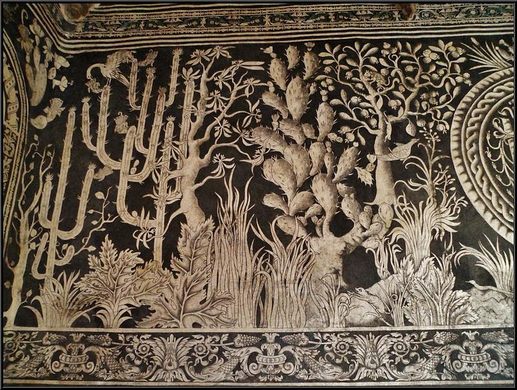








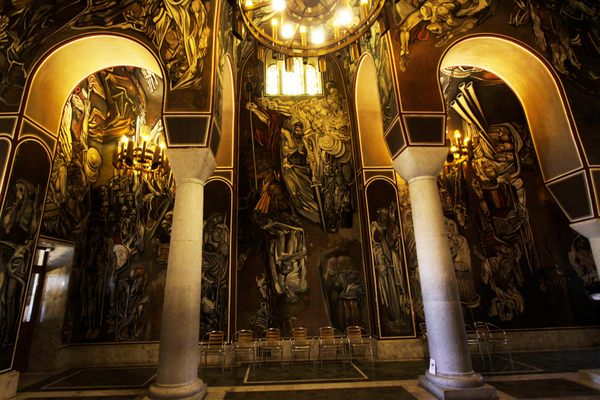

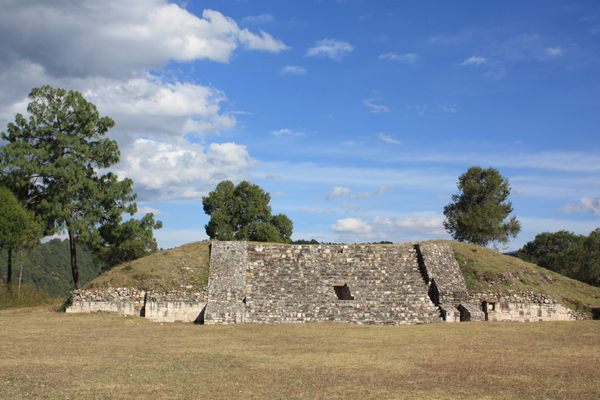

Follow us on Twitter to get the latest on the world's hidden wonders.
Like us on Facebook to get the latest on the world's hidden wonders.
Follow us on Twitter Like us on Facebook